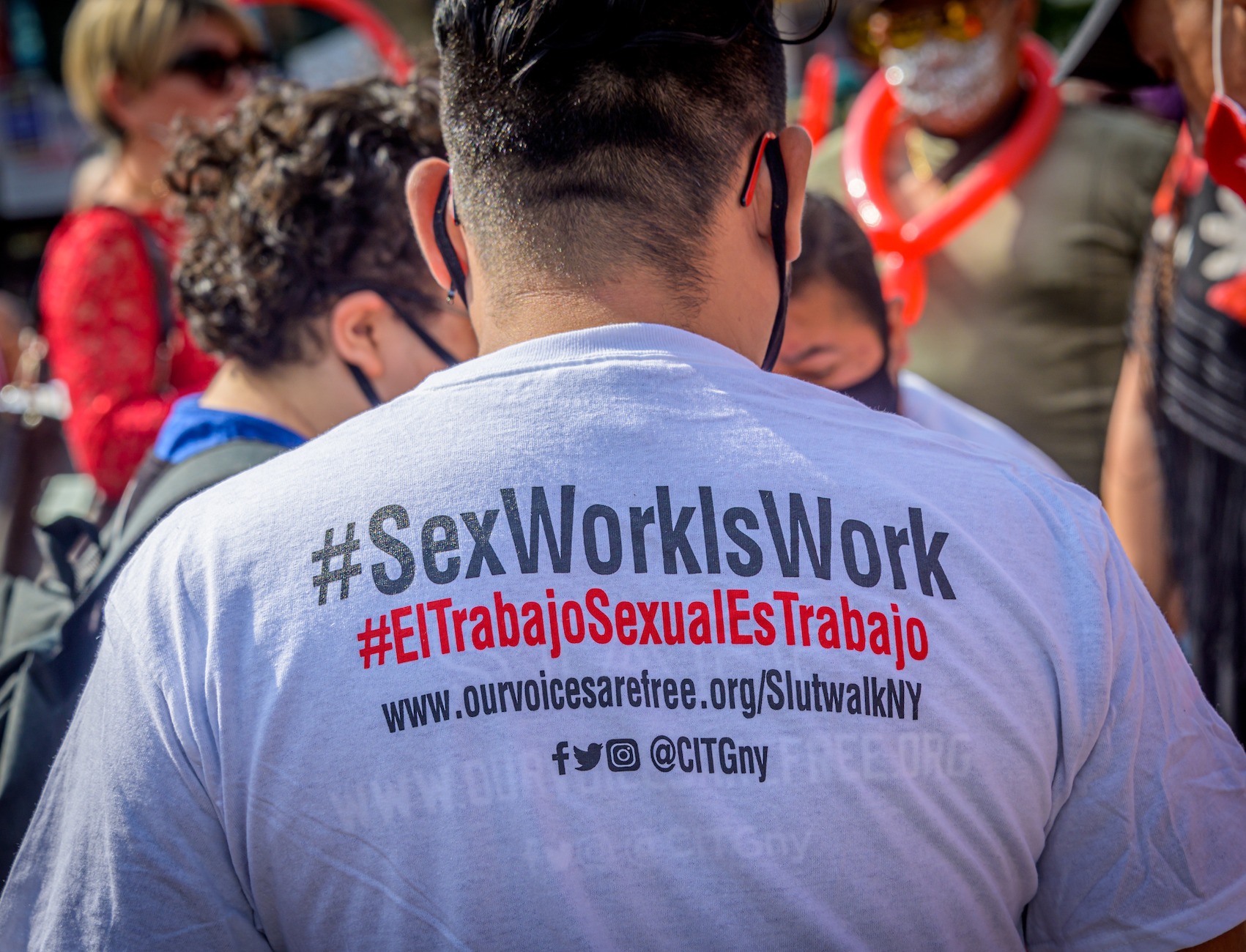Manhattan’s Next District Attorney Must End the Prosecution of Sex Work
Arrest, prosecution, and incarceration have long been wielded against sex workers, with Black, brown, and LGBTQ sex workers disproportionately bearing the brunt of this abuse. Manhattan’s next district attorney must stop prosecuting offenses relating to sex work in order to scale back this system of harm.

The Point
Arrest, prosecution, and incarceration have long been wielded against sex workers, with Black, brown, and LGBTQ sex workers disproportionately bearing the brunt of this abuse. Manhattan’s next district attorney must stop prosecuting offenses relating to sex work in order to scale back this system of harm.
Manhattan’s next district attorney must end the prosecution of sex work:
- The next Manhattan district attorney must not prosecute those who sell or trade sex. Current Manhattan District Attorney Cy Vance recently announced he would no longer prosecute the sale of sex, acknowledging that “criminally prosecuting prostitution does not make us safer, and too often, achieves the opposite result by further marginalizing vulnerable New Yorkers.” Prior to Vance’s announcement, seven of the eight candidates for district attorney had pledged not to prosecute sex workers, although one of those candidates, Tahanie Aboushi, would consider prosecution if the sale takes place in a “school zone.” Liz Crotty would not adopt a non-prosecution policy.
- The next Manhattan district attorney must not prosecute those who buy sex. Partial criminalization, which aims to reduce demand by punishing it, endangers sex workers by driving the sex trade underground and continuing to involve police and prosecution in their work. Six of the eight candidates would not prosecute buyers; Tali Farhadian Weinstein and Crotty would prosecute them.
- The next Manhattan district attorney must advocate for full decriminalization at the state level to decrease arrests and police harassment of sex workers. The district attorney will have significant influence with the state legislature as it considers two bills that would decriminalize sex work to varying degrees. Three candidates (Aboushi, Eliza Orlins, and Dan Quart) support the Stop Violence in the Sex Trades Act, which would broadly decriminalize sex work. One candidate (Weinstein) supports the Sex Trade Survivors Justice and Equality Act, which decriminalizes the sale, but not the buying, of sex. The remaining candidates (Alvin Bragg, Crotty, Diana Florence, and Lucy Lang) have not expressed support for either bill.
Momentum for decriminalization is growing as more people understand the harms of prosecution:
- “The recent growth of support for decriminalization shows the success of the movement of sex workers who are fighing to overcome stigma and secure their rights,” explains Sam Mellins in a recent The Appeal: Political Report and New York Focus article. A 2019 poll by Data for Progress found that a majority of voters support the decriminalization of sex work.
- In 2019, when Tiffany Cabán ran for Queens DA, she was the only candidate to support the full decriminalization of sex work. Two years later, the majority of Manhattan’s DA candidates have pledged not to prosecute sex workers or buyers. This shift mirrors the momentum around the country. Prosecutors in Baltimore, Brooklyn, Philadelphia, and San Francisco have pledged not to prosecute sex work. The Washtenaw County prosecuting attorney—which includes Ann Arbor, Michigan—recently announced he is not prosecuting “any charges related to consensual sex work.”
- The Sex Workers’ Rights Advocacy Network outlines the ways that criminalization leads to increased socioeconomic hardship, increased violence and stigma, and the infringement of individual rights. “Every time you have to deal with police, it’s always harmful,” explained TS Candii, a sex worker and the founder of Black Trans Nation, to The Appeal: Political Report.
Dive Deeper
- In Manhattan D.A. Race, Momentum Builds to Decriminalize Sex Work. Most candidates running in the June election for DA say they would not prosecute cases involving consensual sex work, a striking sign of local activists’ success.
- The Fight to Decriminalize Sex Work in New York. TS Candii of Black Trans Nation and Jared Trujillo of NYCLU join The Appeal Live to talk about their hopes for change in the state.
- New York Moves a Step Closer to Decriminalizing Sex Work. After organizing to repeal the “walking while trans” ban, advocates in the state—and around the country—are looking ahead to the next fight.
- In New York, Local Elections Heat Up, Amid New Moves Against Criminalizing Sex Work. New York activists have been pushing for the state government to decriminalize sex work; two new developments represent steps in that direction.

